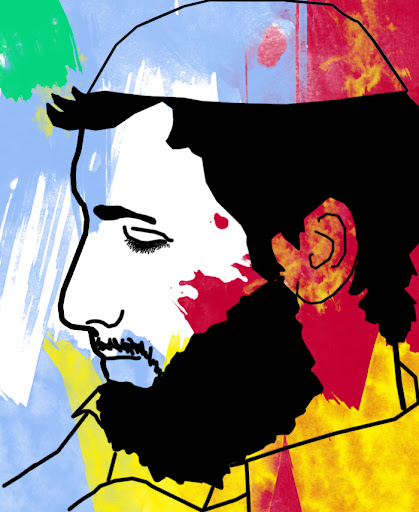I was just told of my Grandmother's Aunt's passing.
(That means she was my Great-Great Aunt)
Below is the letter that I sent to my family. As I said to my cousin, "Take what you want from them, what you find
useful share to others."
We find a dualism in a person's passing, both in terms of Jewish Law and philosophy . . .
From one side we see that the Talmud exhorts us to properly keep the
times of mourning -seven days for shiva, one month, one
year etc. Yet at the same time, we are told that one who extends the
mourning beyond the Halachicaly prescribed bounds commits a sin.
The seemingly above contradiction is in fact an expression of the two perspectives in a persons passing.
From our side, we experience a loss -a loved one has left this world and all those who hold her dear.
We realize, however, that from the other side the soul is now 'close'
to G-d as it were, (for though in truth, the soul is always 'close' to
G-d, who has no limits of time or space, it is now) no longer hampered
by the physical concealment of G-dliness.
While the former arouses in us grief and mourning, the latter arouses joy.
There is a way to reconcile these two emotions.
The Torah states about the passing of Sarah, our Mother, "And the life of Sarah was . . ."
Why does the Torah speak of the life of Sarah on the occasion of her passing?
The answer lies in the continuation of that Torah Portion -the taking of a bride of Isaac.
When we live according to the hopes and desires of the one who passed,
when the children and descendants, family and friends, lead lives in
line with the principles set up by their forebears, then the life of
the one who has passed away remains physically manifest in this world.
May we merit that through living up to the principles of our dear Basha
bas Tzvi Hirsh and Dina Golda Leah, that we merit to see her once
again, not only in spirit, but in physical form, with the coming of
Moshiach now!
(That means she was my Great-Great Aunt)
Below is the letter that I sent to my family. As I said to my cousin, "Take what you want from them, what you find
useful share to others."
We find a dualism in a person's passing, both in terms of Jewish Law and philosophy . . .
From one side we see that the Talmud exhorts us to properly keep the
times of mourning -seven days for shiva, one month, one
year etc. Yet at the same time, we are told that one who extends the
mourning beyond the Halachicaly prescribed bounds commits a sin.
The seemingly above contradiction is in fact an expression of the two perspectives in a persons passing.
From our side, we experience a loss -a loved one has left this world and all those who hold her dear.
We realize, however, that from the other side the soul is now 'close'
to G-d as it were, (for though in truth, the soul is always 'close' to
G-d, who has no limits of time or space, it is now) no longer hampered
by the physical concealment of G-dliness.
While the former arouses in us grief and mourning, the latter arouses joy.
There is a way to reconcile these two emotions.
The Torah states about the passing of Sarah, our Mother, "And the life of Sarah was . . ."
Why does the Torah speak of the life of Sarah on the occasion of her passing?
The answer lies in the continuation of that Torah Portion -the taking of a bride of Isaac.
When we live according to the hopes and desires of the one who passed,
when the children and descendants, family and friends, lead lives in
line with the principles set up by their forebears, then the life of
the one who has passed away remains physically manifest in this world.
May we merit that through living up to the principles of our dear Basha
bas Tzvi Hirsh and Dina Golda Leah, that we merit to see her once
again, not only in spirit, but in physical form, with the coming of
Moshiach now!
Technorati Tags: Mourning, Letters








0 comments:
Post a Comment